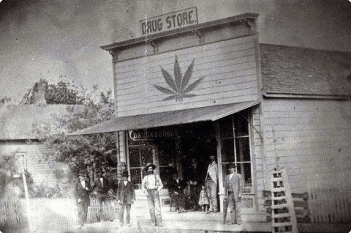What is the State of Marijuana in Alabama?
Marijuana is illegal for recreational purposes in Alabama. The possession of small amounts of cannabis is a criminal offense punishable by up to 1 year of imprisonment and a fine of up to $6,000. The distribution or sale of any amount of marijuana is a felony punishable by up to 20 years in prison and a fine of up to $30,000.
Alabama has a medical marijuana program that allows the use of marijuana for the treatment of certain medical conditions. The Alabama medical marijuana law, called the Darren Wesley ‘Ato’ Hall Compassion Act, was passed and signed into law in 2021. The law permits the use of medical marijuana to treat certain conditions, including cancer, Crohn’s disease, post-traumatic stress disorder (PTDS), Epilepsy, HIV/AIDS, and chronic pain. Qualifying patients must get their physicians’ recommendations before applying for and obtaining Alabama medical cannabis cards. Registered patients must present their Alabama medical cannabis cards at licensed medical marijuana dispensaries to purchase medical marijuana. Cannabis patients are limited to 50mg of cannabis per day for the first three months, after which their physicians can increase it to 75mg daily. Although the state’s medical marijuana program is yet to commence fully, the Alabama Medical Cannabis Commission has been tasked to administer the program.
Before the medical marijuana law was enacted in 2021, Alabama had enacted a limited non-psychoactive CBD oil law in 2014. The law, called Carly’s law, allowed the University of Alabama at Birmingham (UAB) to use non-psychoactive CBD oil to treat children with debilitating seizures as part of clinical studies of CBD oil. CBD oil may have up to 3% tetrahydrocannabinol (THC). In 2016, the law was expanded to allow individuals with medical conditions involving seizures or debilitating diseases access to CBD oil with no more than 3%THC.
How has Marijuana Affected the Alabama Economy?
As a result of the illegal status of recreational marijuana in Alabama, its effect on the state’s economy cannot be accurately ascertained. The non-psychoactive CBD oil was too restrictive to make an economic difference while the regulations and permits for the Darren Wesley ‘Ato’ Hall Compassion Act are just being set up and have not become effective. However, some estimates suggest that Alabama can make up to $600 million from the Darren Wesley ‘Ato’ Hall Compassion Act medical marijuana program within the first 3 years of operations.
Furthermore, a report by the Southern Poverty Law Center (SPLC) and the Alabama Appleseed Center for Law and Justice revealed that the state spent $22 million enforcing the prohibition of marijuana in the state in 2016. It also noted that 92% of all marijuana-related arrests were for personal possession of marijuana in 2016, while 89% of marijuana-related arrests between 2012 and 2016 were for possession of marijuana.
What is the Marijuana Crime Rate in Alabama?
The crime data submitted to the Federal Bureau of Investigation (FBI) for Alabama showed that in 2014, when Carly's law was enacted, there were 109 marijuana possession arrests and no marijuana sale arrests in the state. By 2015, marijuana possession arrests had increased to 2,692, and marijuana sales arrests also increased to 353. In 2016, there were 2,490 marijuana possession arrests and 282 marijuana sales arrests. In 2021, there were 2,778 marijuana possession arrests and 45 marijuana sales arrests.
The Alabama driving under the influence (DUI) arrest data revealed that there were 293 DUI arrests in 2014 and 8,143 DUI arrests in 2015. In 2016, there were 8,275 DUI arrests, and in 2019, there were 6,275 DUI arrests. The trend showed that after the passage of Carly's law in 2014, marijuana-related arrests increased exponentially in Alabama. DUI arrests also increased after 2014. The effects of the Darren Wesley ‘Ato’ Hall Compassion Act, the most recent bill that legalized medical cannabis in Alabama, cannot yet be measured.
More recent FBI data show that 2,191 arrests were made in Alabama for marijuana possession and 126 arrests for illegal marijuana sales in 2018. By 2023, marijuana possession arrests totaled 6,900 while sales arrest number was 190.
What is the History of Alabama Marijuana?
Marijuana has a long and complex history in Alabama. The cultivation and use of marijuana have been documented in the state for hundreds of years, and it has played a significant role in the state's cultural and economic life. It has been used for medicinal purposes since at least the 19th century in the state, and it was also used as a recreational drug. Marijuana became illegal to possess and use in Alabama in 1931.
After previous failed attempts, Alabama passed the limited non-psychoactive CBD oil law to permit the use of CBD oil with no more than 3% THC for treating children experiencing seizures by the University of Alabama at Birmingham (UAB) in 2014. The law (Carly’s law) was named after a 4 years old girl, Carly Chandler, who suffered three to five epileptic seizures daily. It was limited to the treatment of children with seizures and can only be administered to patients enrolled in UAB clinical study on CBD. The bill was presented by Representative Mike Ball as HB 104 and signed into law on April 1, 2014.
In 2016,Carly’s law was expanded to allow any person with a debilitating disease or medical condition involving seizure to access CBD oil with up to 3% THC. The amended law, called Leni’s law, allowed any registered physician in Alabama to recommend low-THC CBD oil to qualified patients. The bill (HB 61) was sponsored in the Alabama House by Representative Mike Ball and signed into law on May 4, 2016, by Governor Robert Bentley.
In 2021, the Darren Wesley ‘Ato’ Hall Compassion Act (SB 46) was enacted to allow medical marijuana for the treatment of specific medical conditions and diseases. The bill was sponsored by Senator Tim Melson and signed into law on May 17, 2021, by Governor Kay Ivey. The law permits medical marijuana patients to consume marijuana in different forms, including gel, tincture, oil, oral tablet, cream, transdermal patch, liquid oil, and nebulizer. However, vaping or smoking marijuana is prohibited under this law. It is also illegal to consume marijuana as edibles. Furthermore, the law allows cities and counties in Alabama to permit or prohibit the establishment of marijuana dispensaries within their jurisdictions via resolutions and ordinances.
Recreational marijuana is still illegal in Alabama. There has been no bill for the legalization of recreational marijuana in the Alabama Senate or House. However, there have been bills to decriminalize or reduce the penalties for recreational marijuana in both legislative bodies. Senator Bobby Singleton sponsored Senate Bill 98 in 2019 to decriminalize the possession of less than 2 ounces of marijuana. SB 98 proposed eliminating felony charges for the first two personal use possession of marijuana offenses. It also sought to reduce second-degree possession of less than 2 ounces of marijuana from a misdemeanor to a violation. However, the bill died in the Senate Committee on Judiciary. Senator Singleton reintroduced the bill in the 2021 and 2022 sessions of the Alabama Senate, and the bill was killed on both occasions. Representative Patricia Todd also proposed a similar bill (HB 272) in the Alabama House. HB 272 would have reduced the punishment of possession of up to 1 ounce of marijuana from a misdemeanor to a violation punishable by a fine of up to $250. However, it was rejected in the House.

Cultivation of marijuana in the United States, the early 17th century.




